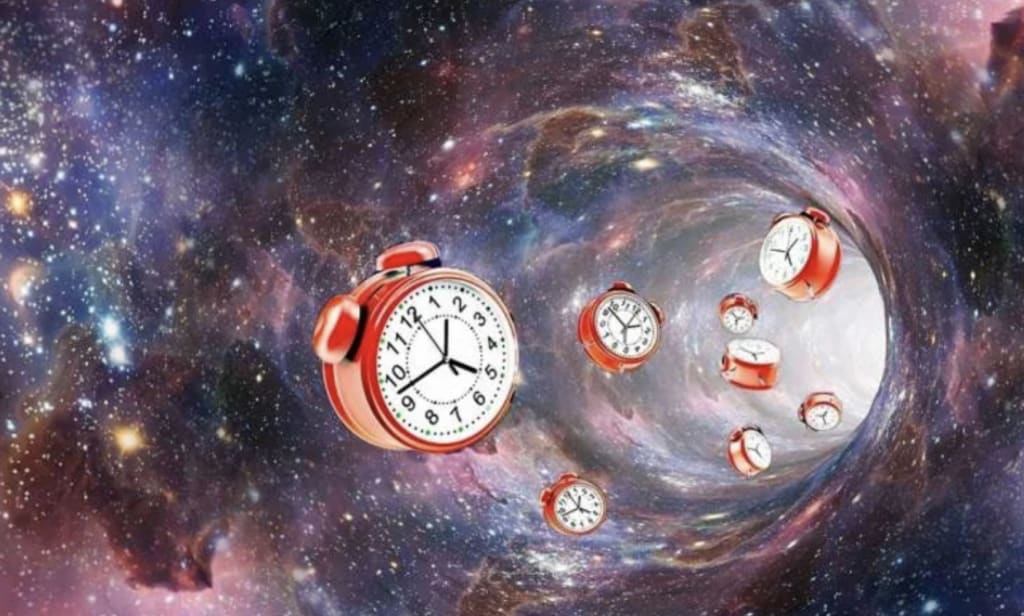
First, let's define what we mean by time travel. Time travel is the concept of moving between different points in time, either forwards or backwards. This can be achieved through various means, including through the use of a time machine or by manipulating the fabric of time itself.
Time travel has long been a subject of fascination and wonder, captured in countless books, movies, and TV shows. The idea of being able to travel through time and witness historical events or see the future has always been a captivating one. But is time travel really possible? In this blog, we will explore the possibilities and limitations of time travel, as well as some of the potential implications of traveling through time.
One of the main theories of time travel is that it is possible through the use of a wormhole. A wormhole is a hypothetical tunnel through space-time that would allow someone to travel from one point in space to another, or even through time. The idea is that by entering a wormhole, one could travel back or forward in time and arrive at a different point in history or the future.
However, even if a wormhole could be found or created, there are still several limitations to time travel. One of the most notable limitations is the concept of causality. This refers to the idea that an effect must always follow its cause in time, and that events in the past cannot be changed without causing paradoxes or inconsistencies in the timeline. For example, if someone were to travel back in time and accidentally prevent their parents from meeting, they would cease to exist, creating a paradox.
Another limitation of time travel is the issue of free will. If events in the past are predetermined, then there is no room for free will, and the actions of the time traveler could have no real impact on the course of history. Conversely, if the time traveler were to change events in the past, then the future they came from would be altered, leading to unpredictable consequences.
Despite these limitations, the concept of time travel remains a popular subject in science fiction, and many people continue to dream of traveling through time. But even if time travel were possible, there would likely be serious ethical considerations to take into account. For example, if someone were to travel back in time and change the course of history, what impact would this have on future generations? Would it be morally justifiable to interfere with the past in this way?
There are also various theories related to the nature of time itself that have implications for time travel. One such theory is the concept of time dilation, which suggests that time can be experienced differently depending on factors such as speed and gravity. This means that someone traveling at a high speed would experience time differently than someone who is stationary. This concept has been explored in science fiction, such as in the novel "The Forever War" by Joe Haldeman.
Another theory related to time travel is the idea of the block universe theory. This theory suggests that time is a dimension that is fixed and unchanging, and that everything that has ever happened or will ever happen already exists. This means that time travel would not be possible in the sense of changing events in the past, as the past is already fixed.
Finally, there is the concept of the grandfather paradox, which is a hypothetical scenario in which someone travels back in time and accidentally kills their own grandfather, preventing their own birth. This paradox highlights the potential issues and complications that could arise from time travel.. This theory suggests that time is a dimension that is fixed and unchanging, and that everything that has ever happened or will ever happen already exists. This means that time travel would not be possible in the sense of changing events in the past, as the past is already fixed.
Finally, there is the concept of the grandfather paradox, which is a hypothetical scenario in which someone travels back in time and accidentally kills their own grandfather, preventing their own birth. This paradox highlights the potential issues and complications that could arise from time travel.
In conclusion, time travel remains a theoretical concept that has captured the imaginations of people for generations. While there are many limitations to time travel and the implications of changing history can be complex and unpredictable, the idea of being able to witness historical events or see the future is an intriguing one. Whether time travel will ever become a reality remains to be seen, but the possibility continues to spark the imagination of scientists and dreamers alike.
About the Creator
Raj’s Vocal
Welcome to my channel :)






Comments
There are no comments for this story
Be the first to respond and start the conversation.